
THE VOICE OF INTERNATIONAL LITHUANIA
|
VilNews has its own Google archive! Type a word in the above search box to find any article.
You can also follow us on Facebook. We have two different pages. Click to open and join.
|
Front page
- Posted by - (0) Comment
Lithuanian elections
Yes to stability,
no to austerity
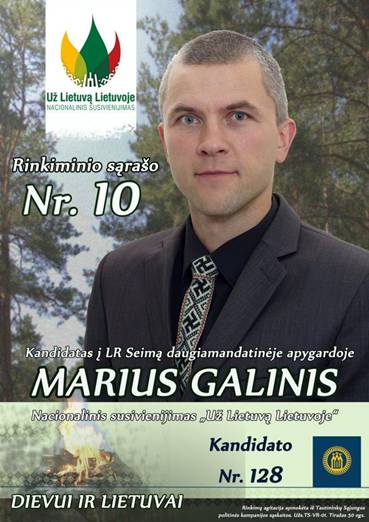
As a relief to many liberal-minded people and human rights activists came the news that Lithuanian voters completely trashed ultra-nationalist parties. The National Alliance “For Lithuania in Lithuania” (whatever that means) tried its best to mobilize the most primitive ethnic hatred, although even a classical antisemitic cartoon they distributed was about economy (the incumbent government's work in returning religious property of Jewish communities, that was nationalized under the Soviet rule). PHOTO: Marius Galinis of the „Union For Lithuania in Lithuania.“ (Lithuanian „Nacionalinis susivienijimas ‘Už Lietuvą Lietuvoje’“)
By Daiva Repečkaitė
The complicated electoral system in Lithuania makes general elections an exciting show. After the first round, when multi-constituency votes were counted, the victory of the populist Labor Party looked clear. However, after the second round (half of the Members of the Parliament are elected in single-seat constituencies), voters brought the traditional rivals, the Social Democrats and the Conservatives, ahead of the populist party. Despite the initial panic and hasty criticism of the election outcomes as a victory of populist and pro-Russian forces, the election brought unprecedented gain to traditional parties and strengthened the forces with consistent ideologies. It is also time to understand that economy in Lithuania comes before relations with Russia.
- Bookmark :
- Digg
- del.icio.us
- Stumbleupon
- Redit it
- Posted by - (0) Comment

Lithuanians
in the World
VilNews will from time to time present Lithuanians who have left the home country and made some kind of career abroad. We are this time not so much looking for celebrity articles, more for some unusual life stories describing Lithuanians who have settled somewhere in the world. Send us your story!Bernard M Terway, Texas
I am proud of my
Lithuanian heritage

Lithuania, beer in a tube, me with a glass and a smile.
What more could you want?
Bernard M Terway (Tirva), Leander, Texas
Lithuanians left their home country starting in the 1800’s and, new waves keep coming to the United States all the time. My grandparents were among the “first wave” immigrants, leaving Lithuania for a better life in America, getting away from being conscripted into the Russian army, living under Russian rule, and for economic reasons.
It is still a mystery to me where they came from, where they entered the United States, but their life story begins in Pennsylvania. That, is not, however, the reason for this story.
I was born in 1940, the last of seven children, six boys and one girl. We all were baptized in the local Lithuanian church, where we attended mass on Sundays and Holy Days. I, along with two of my older siblings, went to the Lithuanian elementary school where we were taught by the Sisters of St. Casimir.
There was an attempt to teach us Lithuanian. Most of us were born at the beginnings of the Second World War, and speaking a foreign language was probably not the best way to get by at that time. I do remember the books we had to learn from, not very sophisticated, but then again, they were not meant to be. What I do not remember is being taught about Lithuania.
- Bookmark :
- Digg
- del.icio.us
- Stumbleupon
- Redit it
Viktor Uspaskich – who’s behind the mask?
- Posted by - (0) Comment
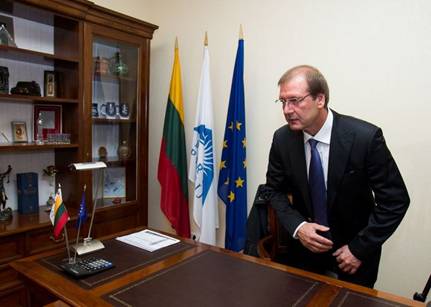
Photo: Irmantas Gelūnas/15 min
Less than ten years have passed since Lithuanian media seriously started to tell us about Viktor Uspaskich, the Russian who moved to Lithuania in the late 1980s to work as a welder, later becoming a successful businessman and politician. We learned about a businessman who paid wages to his employees as cash in envelopes, we heard that he was Gazprom's long arm into Lithuania and that big dollar amounts were smuggled from Moscow via Riga to Lithuania to bribe institutions and voters to help build up the political party he was in the process of establishing, a party which in 2004 led him right to the top in that year's parliamentary elections.
We heard that he was a Russian spy with the special task of undermining the Lithuanian economy and its advancing toward association with the EU and NATO, and that the 'cucumber firm' he had established in the small town Kėdainiai west of Kaunas was only a cover for his much bigger escapades in sales of Russian natural gas to Europe and helping to create more Russian influence on political decision-making in Lithuania and later also in the EU.
Viktor Uspaskich succeeded in establishing his Labour party in 2003 and became a strong force in the 2004 government of PM Algirdas Brazauskas. According to reports, Uspaskich, proposed that Brazauskas should keep the prime minister's seat in return for allowing Uspaskich, to become deputy prime minister. Brazauskas rejected the informal bid, saying he did not want "to be a tool in Uspaskich's hands and assume responsibility for mistakes made by the new administration."
In 2006 this government split and Mr Uspaskich himself disappeared to Russia. This followed leaks that prosecutors were investigating several lurid claims, notably that the party was taking kickbacks from European Union grants, that it had breached campaign-finance limits in the 2004 election and that it had taken money from Russia. Mr Uspaskich said he was not responsible for book-keeping, and that the attacks on his party were purely political.
In 2007 Uspaskich returned to Lithuania and, in 2008, he was again elected to parliament , however stripped of the immunity he had acquired. The European Parliament later did the same thing, which Uspaskich labeled as undemocratic.
In 2009 Mr. Uspaskich was elected to the European Parliament whereupon Lithuanian authorities asked the EU Parliament to waive his parliamentary immunity. This was refused, leading to a sharp exchange of words between MEP Vytautas Landsbergis and the European Parliament’s Sir Graham Watson as late as in 2011.
Then this year's election comes, and Uspaskich is again on top in spite of all the accusations, investigations and turbulence he has been in the centre of for almost 10 years now. President Dalia Grybauskaite reportedly does not want to name the Russian businessman as prime minister and he, it is said, does not especially yearn for the position because he wouldn’t have time for his businesses. In addition, as noted by the most famous Lithuanian political commentator, Rimvydas Valatka, no prime minister in Lithuania has ever gained popularity while in office – rather the opposite. “And he [Uspaskich] needs to start playing various games, so that he could play the savior,” Valatka said, asserting that a coalition of social democrats (former communists) will play the role of those who will do unpopular things.
A look at the country’s demographics suggests a possible explanation for why Uspaskich won. For the past 15 years almost one million people, especially the young and enterprising, have left the country. The older ones who remain would prefer to vote for Uspaskich or someone else who promised them security. The pre-election debate, therefore, revolved around a hike in the minimum wage.
Then, just before the second round of the 2012 election, it becomes known that Lithuania's Prosecutor General's Officer has charged the Labour Party, its leader Viktor Uspaskich, Labour MP Vytautas Gapšys, candidate in the ongoing Seimas elections Vitalija Vonzutaitė, as well as the party's former accountant Marina Liutkevičienė with fraud in the party's fraudulent bookkeeping case.
The prosecutor said that the Labour Party's financial documentation for the 2004-2006 period failed to include about LTL 25 million (EUR 7.3 million) in income and about LTL 23 million in spending related to property, commitments, and structural changes. The party also allegedly failed to pay taxes of around LTL 4 million.
Uspaskich is facing up to 8 years in prison. He strongly denies all charges.
What is the truth and who exactly is this man?
- Bookmark :
- Digg
- del.icio.us
- Stumbleupon
- Redit it
- Posted by - (0) Comment

Lithuanians
in the World
VilNews will from time to time present Lithuanians who have left the home country and made some kind of career abroad. We are this time not so much looking for celebrity articles, more for some unusual life stories describing Lithuanians who have settled somewhere in the world. Send us your story! I am one who left
I am one who left
Lithuania in 1996
Nellie Vin, New York
I am one who left Lithuania in 1996 after we got independence in 1990. In few years the country’s economists, with Landsbergis as the head on top, crushed all too fast (with privatization) without providing and helping with starting of small business and lowering taxes for new business people. Finally imported, cheap products from Poland killed local farmers’ business. It’s become not profitable to grow own organic healthy products and sell for Lithuanian people. Many people left to look for opportunities in other countries. Still young and older people are leaving. No one wants to wait. We need today! Not to wait on promises for a better tomorrow.
Once they were young
and fresh as paint

Nellie Vin (photography, Lithuania 2010)
Peter Heydon (text)
- Bookmark :
- Digg
- del.icio.us
- Stumbleupon
- Redit it
- Posted by - (0) Comment
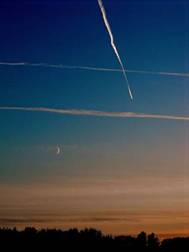 Time to
Time to
leave
Lithuania?
By Aage Myhre, Editor-in-Chief
I asked this question in my editorial last week, referring to the massive migration that takes place from Lithuania these days. We talk no longer about emigration, but about evacuation.
I also ventured to express some criticism on how this country has been ruled for the past 22 years, as it is my conviction that the mass exodus is due to these years’ mismanagement and inadequate facilitation for new jobs, new investments and new businesses.
I forgot, by the way, mentioning rule of law and system critical press as key ingredients for a country that wants progress. In these two areas Lithuania is still an undeveloped nation.
I used myself as an example. That was perhaps a mistake. What I wanted to convey was that foreigners who have come here to work or develop business do not feel particularly welcome. I also wanted to say that the same largely applies to the country’s own population, not least to all those who are now 'fleeing' from here, looking for a new and better country to live in.
Let me also stress that I myself will never leave Lithuania as such. A prominent Lithuanian-American once asked me why I do so much for Lithuania, although I do not have my roots here. My response was that 'I have my branches here, and branches are as important as roots'. I obviously was referring to my two children, who I hope one day will feel real pride being 50% Lithuanian. Because the downturn of this country will not continue forever. One day the negative trend will reverse.
Let me also state that VilNews will continue and increasingly evolve as an important link between Lithuanians and their homeland. More and more people are reading VilNews, more and more writing for us or contributing in other ways.
I think such a common communication platform will prove important in the 'reconstruction' of Lithuania as a nation, and of 'all Lithuanian' as a common, strong bond between all of us with Lithuania in our hearts.
Click HERE to read my last week editorial…
-------------------------------------------------------------------------------------------------
Here a few of the comments we have received:
 Gaila Mucen, Australia |
Maybe the Government will listen and start doing something when even westerners who wanted to build a thriving Lithuania start leaving Your thoughts reflect the sentiments of other foreigners who came to Lithuania with big expectations of what a great country it could be but the situation today is a far cry from these expectations. Read more… |
 Lars M. Hansen, Denmark/ Lithuania |
Our love and hate relation to the lovely place called Lithuania Very well described, the love and hate relation to the lovely place called Lithuania. With so many opportunities and still with such grim prospects of the future. I say STAY. And not let the negative, departing nor disillusioned part of population decide which way their country will go… Read more… |
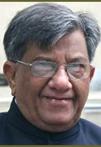 Rajinder Chaudhary, India/Lithuania |
Let us sail together and if at all sink – then sink together Aage, Most of all feel much the same way for our dear Lithuania as we all came here not only to do something for ourselves but for this country too. I can say with confidence that things have improved but the impact is hardly felt. The Outflow of the young manpower who are the future of this country is a very worrying factor… Read more… |
 Kestutis Eidukonis, Arizona/Lithuania |
What this country needs is a Leader who believes in Lithuania It is always darkest before the storm. Being close to the problems is difficult. But we cannot give up! We cannot be quitters. The fight must go on. Lithuanian partisans gave their lives for their country, countless thousands of Lithuanians suffered in Gulags. Others suffered the loss of their country for years. The "Soviet" apparatus is very good… Read more… |
 Irene Simanavicius, Toronto, Canada |
If you wanted to create a ruckus or take a stand, then moving to Lithuania was probably not your best choice Moving to a foreign country is one of the biggest life transitions you can ever make. While it can be challenging and fraught with paperwork, it can also be an immensely rewarding and enriching experience. Whether the move is for business purposes or for personal reasons. Read more… |
- Bookmark :
- Digg
- del.icio.us
- Stumbleupon
- Redit it
- Posted by - (0) Comment

|
Trust me, we
|
By Nellie Vin, Florida
I am one who left Lithuania in 1996 after we got independence in 1990. In few years the country’s economists, with Landsbergis as the head on top, crushed all too fast (with privatization) without providing and helping with starting of small business and lowering taxes for new business people. Finally imported, cheap products from Poland killed local farmers’ business. It’s become not profitable to grow own organic healthy products and sell for Lithuanian people. Many people left to look for opportunities in other countries. Still young and older people are leaving. No one wants to wait. We need today! Not to wait on promises for a better tomorrow.
COMMENTS
|
|
We felt rejected, let down and my teenager's respect to Lithuania reduced
|
|
|
Lithuania will remain in me no matter where I would be.
|
- Bookmark :
- Digg
- del.icio.us
- Stumbleupon
- Redit it
- Posted by - (0) Comment
“Ikh bin a vilner,” Samuel
Bak declared, in Yiddish
Ellen Cassedy reporting from Washington D.C.
“Ikh bin a vilner,” Samuel Bak declared, in Yiddish, to an audience at the Lithuanian Embassy in Washington, D.C., October 15.
Echoing President John F. Kennedy’s famous statement in Berlin, the artist meant that he is from Vilna, of Vilna – and so is his abundant body of work.
Bak was at the Embassy for the opening of an exhibition of his paintings, which powerfully evoke the city of his childhood – and its destruction during the Nazi era.
- Bookmark :
- Digg
- del.icio.us
- Stumbleupon
- Redit it
- Posted by - (0) Comment
Time to leave
Lithuania?

“You are crazy still staying in Lithuania. Look what
you have done for this country, not even getting a
thank you in return; pack your things and leave.”
A Lithuanian friend told me this not long ago.
By Aage Myhre,
Editor-in-Chief
Lithuania is a terrific country with infinitely many good qualities. For several centuries this nation set a good example to the rest of Europe, in politics, diplomacy, tolerance, multiculturalism, religious freedom, economy, trade, agriculture and much more. Much was admittedly destroyed by the Russian occupation during the 19th century, the devastating, bloody developments during and after the Second World War, and finally the Soviet occupation of this once strong, proud nation, from the war until year 1990.
In 1990, when I came to Lithuania for the first time, my conclusion was that Lithuania was an amazing country that would soon regain its former greatness, not as it was during the reign of the Grand Dukes from the 14th to the 17th century when the country was stretching from the Baltic to the Black Sea, more like the nation that emerged in the interwar years when the country finally became free after more than 100 years under the Russian Tsar's supremacy.
I'm not so sure anymore. Admittedly, a lot of good happened over the last 22 years, but we have also seen revealed much filth, corruption, lack of teamwork, indistinct or absent political leadership often more interested in own pockets than the country's welfare. The joy of again being a free country was short-lived, quickly replaced by greed, distrust and fight for positions rather than constructive, energetic cooperation.
Many Lithuanians, especially the young people, who should lead the country forward, are terrible disillusioned over the development, and leave in droves.
- Bookmark :
- Digg
- del.icio.us
- Stumbleupon
- Redit it
- Posted by - (0) Comment
Guardian Angels
– do they exist?

Guardian angel, by Pietro da Cortona, 1656
Some weekend thoughts
by Irene Simanavicius, Toronto
“Guardian Angels.....ethereal beings who we feel and sometimes see....who snatch us from the brink of disaster and give us subtle advice.....who watch over us while we go about our mundane activities......what a wonderful concept! The concept has been in the supernatural spectrum since ancient times. However, today Angels are inherently a highly religious phenomenon, and the implied concept of Angels is indirect communication with God himself.”
The concept of Guardian Angels has likely been around since the dawn of mankind. It is a concept that has been embraced in some form by virtually every religion since the beginning of religion itself. The modern day depictions of winged beings sitting on clouds and playing harps comes to mind in pretty much all of us when we think of our Guardian Angel, or of Angels in general. In the mainstream psyche, we generally equate Guardian Angels as a spiritual being with our best interests at heart whose purpose is to serve us without interfering with our free will. The modern marketplace solidifies this with angel statuettes, jewelry, wall hangings, plaques and every kind of Angel paraphernalia imaginable at every turn. Classic movies involve Angel themes, most notably in "A Wonderful Life" where an Angel gently shows a mortal man the positive impact he has had on the lives of others, thus turning his own life around.
So what are Guardian Angels? Are they real? Are they figments of our collective imaginations? Are they something in the realm of paranormal like ghosts? Is there any proof that they exist? Are they agents of God? Can we see them? What do they look like? Can we talk to them?
- Bookmark :
- Digg
- del.icio.us
- Stumbleupon
- Redit it
- Posted by - (0) Comment

Lithuanians
in the World
VilNews will from time to time present Lithuanians who have left the home country and made some kind of career abroad. We are this time not so much looking for celebrity articles, more for some unusual life stories describing Lithuanians who have settled somewhere in the world. Send us your story!From Šiauliai to USA,
Africa and New Zealand
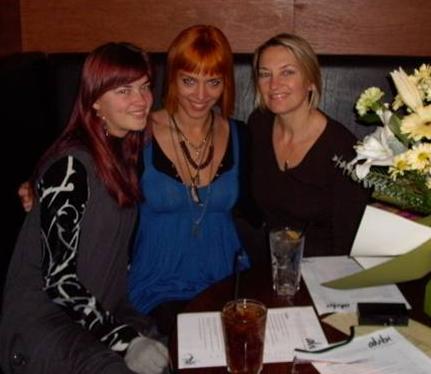
Virginia Shimkute with her daughters, Roberta who now considers
Africa her home, and Arune who has happily settled in the U.S.
Letter from Virginia Shimkute, New Zealand
I am currently living in Bay Of Islands, New Zealand, popular tourist destination, working in hospitality, tourism business for over 2 years. It’s been a drastic change in last 3 years, not only moving countries but change of career as well. From corporate world-offices, board meetings, pressurised job which does give you security to totally opposite: I am now my own boss in a holiday destination environment, watching dolphins swimming by, fish, boats and birds, always in the open air. Mind you – no securities.
In a week or two I will be opening a brand new impressive shop on a waterfront – selling New Zealand’s locally produced delicacies – Manuka honey, exquisite chocolate, cheeses-all supplied by local producers. Exciting and busy time.
Back a bit-was born and brought up in Siauliai, northern Lithuania. I had excellent teachers and received a very good education. Later I studied in Vilnius and got to love that special city. After receiving a diploma in programming, I went back to Siauliai for work. Few years later moved with family to Vilnius.
First overseas trip happened in 1990, to USA. Strange experience of a totally different world, different values compared to Lithuania.
After less than a year, due to family commitments, I returned to Vilnius in early January 1991.
Most memorable night which I will never forget – 13th of January 1991. Picture me: 9 months pregnant, just returned from the “smiley, cheery, bright Americas”, all alone at night in my central Vilnius flat, tanks rolling by. My dog was trembling with fear, trying to fit on my lap-only company I had. My husband had left for Siauliai to bring my mom who was supposed to be helping with the new arrival – my baby. Sad night for all of Lithuania. Happy ending later – new life commenced 25 of January.
- Bookmark :
- Digg
- del.icio.us
- Stumbleupon
- Redit it
- Posted by - (0) Comment
PAIHIA – the Jewel of the
Bay of Islands, New Zealand
Paihia is the main tourist town in the Bay of Islands in the far north of the North Island of New Zealand. It is located close to the historic towns of Russell, and Kerikeri, 60 kilometres north of Whangarei. The origin of the name Paihia is obscure. One, possibly apocryphal, attribution is to Reverend Henry Williams. When Williams first arrived in the Bay of Islands he knew only a little of the Māori vocabulary, one of the words he did know being ‘pai’ meaning 'good'. When they came to the place now known as Paihia, he told his Māori guide ‘Pai here’. Henry Williams named the missionary station Marsden's Vale; eventually the name Paihia became the accepted name of the settlement. Nearby is the historic settlement of Waitangi to the north, and the residential and commercial areas of Haruru Falls/Watea to the west; the township of Opua and the small settlement of Te Haumi to the south. The population of Paihia was 1770 in the 2006 Census, a decrease of 69 from 2001
Also see:
www.kerikeri.co.nz www.bayofislands.co.nz www.visitfarnorthnz.com

- Bookmark :
- Digg
- del.icio.us
- Stumbleupon
- Redit it
- Posted by - (0) Comment
Marija Danguolė Navickienė, new President
of the Lithuanian World Community
We shall become a force, one to be desired and respected as an ally on behalf of Lithuania
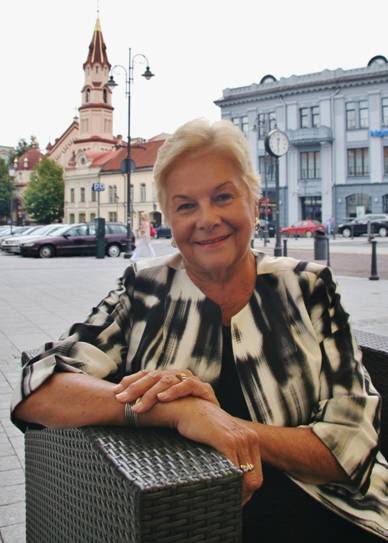
Marija Danguolė Navickienė is the new President of
Lithuanian World Community (LWC).
Photo: Aage Myhre
Marija Danguolė Navickienė, new President of the Lithuanian World Community (LWC) interviewed by Aage Myhre, VilNews Editor-in-Chief
A new Board of Lithuanian World Community (LWC) was elected during the 14th World Lithuanian symposium held in August 2012 in Vilnius. Marija Danguolė Navickienė was elected new President for the organisation, replacing Regina Narušienė who chaired the LWC Board for six years. Here is our interview with the fresh LWC President.
Congratulations as newly elected President of the Lithuanian World Community (LWC)! For the next years you will lead the huge Lithuanian nation-outside-the-nation representing almost as many people as the country itself. What are your visions for this important job?
My vision is one of attaining mutual understanding, respect and cooperation between the people of Lithuania and its diaspora, as well as among the many different countries of the world where there are Lithuanian communities.
- Bookmark :
- Digg
- del.icio.us
- Stumbleupon
- Redit it
- Posted by - (0) Comment
Lithuania’s Foreign Ministry
is committed to its “Global
Lithuania” Programme
Foreign Minister Audronius Ažubalis is personally committed to the “Global Lithuania” program and to strengthening ties with the diaspora. During a recent working visit to the United States, he made a special trip to a national gathering of the Lithuanian-American Community in Atlanta. There he told assembled delegates that Lithuania and its diaspora are one undivided and indivisible family. He also discussed practical ways and means for strengthening mutually beneficial cooperation and partnership.
When the Foreign Minister appointed Gintė Damušis to the new position of Ambassador at Large for relations with the Lithuanian World Community, he reiterated that State-diaspora relations are among the MFA’s policy priorities. Moreover, he expressed his appreciation for the work of Lithuanians abroad, who have actively contributed to the well-being, prosperity and viability of Lithuania. He also recognized the importance of past support and expressed the hope that efforts could be multiplied in the future through complementary and joint cooperation.
Connecting Lithuania
and the diaspora
Gintė Damušis, newly appointed Ambassador at Large for relations with the Lithuanian World Community interviewed by Aage Myhre, VilNews Editor-in-Chief
After recently completing her posting in Ottawa as Ambassador of Lithuania to Canada, Gintė Damušis returned to the Ministry of Foreign Affairs as Ambassador at Large in the Department of Lithuanians Living Abroad in charge of relations with the Lithuanian World Community. Her duties include strengthening ties with Lithuanian organizations abroad, engaging Lithuanian communities through joint projects in the implementation of the “Global Lithuania” strategy, also rallying diaspora support for strategic Lithuanian interests. This is our interview with Ambassador Damušis.
Congratulations on your new position and duties. What is your vision for this important job?
I discussed the goals of this new assignment with the Minister. The vision is to actively engage the diaspora by promoting joint projects and activities for maintaining Lithuanian identity through educational, cultural, economic and other programs. We want to expand connections by encouraging communities to think locally, but act globally by sharing expertise and building business and other professional networks for promoting trade, investment, scientific and other cooperation. We are encouraging direct engagement with Lithuanian civil society so that the Lithuanian people can benefit practically from more active ties with the diaspora. More people-to-people contacts will open doors and expand horizons. Promoting volunteerism and the sustainability of diaspora activities abroad are issues that will continue to receive attention, also help raise public awareness about the diaspora. These may sound like ambitious tasks, but many fine initiatives in the diaspora and Lithuania alike are already underway, an entire Foreign Ministry department is dedicated to facilitating this work and 13 Government agencies are mandated to support these and other programs under a “Global Lithuania” action plan. We need to build upon these initiatives, strengthen and expand these efforts, multiply their scope and impact, so that the untapped potential of the diaspora is better utilized.
- Bookmark :
- Digg
- del.icio.us
- Stumbleupon
- Redit it
- Posted by - (0) Comment
First time in the Lithuanian American Community:
3rd waver (trečia bangė)
becomes President
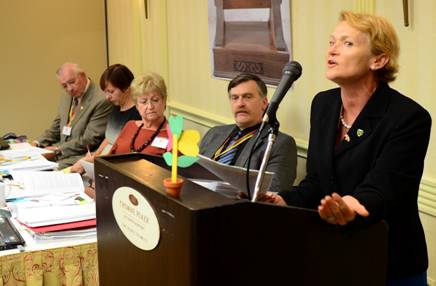
The new LAC President Sigita Šimkuvienė-Rosen addresses
the LAC meeting in Atlanta, Georgia
In a meeting held in Atlanta Georgia on the 28 and 29th of September, the Lithuanian American Community made history by appointing its first ever 3rd Waver (Trečia Bangė) as President. The XX session of LAC elected Sigita Šimkuvienė-Rosen a recent immigrant to the highest office. Sigita came to the USA just eleven years ago and has been very active in LAC circles. The 3rd wave refers to the Lithuanian Émigrés who left Lithuania after independence - up to now most Lithuanian exile organizations have been run by the 2nd Wave which refers to those who left during WWII. Sigita broke the mold.
- Bookmark :
- Digg
- del.icio.us
- Stumbleupon
- Redit it
- Posted by - (0) Comment
![]()
Lithuania set to elect
Russia-friendly party
09 October 2012, Reuters
Austerity-weary Lithuanians are set to eject the country's ruling center-right coalition in an election this month, a move likely to ease ties with Russia and to delay the moment the small European Union member state joins the euro.
But the new government, which opinion polls show is likely to be a broad coalition led by the center-left Social Democrats, is expected largely to stick to austerity, as the Baltic state cannot afford to be frozen out of debt markets.
"The situation is unbearable — half of Lithuania has emigrated," said Svetlana Orlovskaya, 65, as she headed to work as a factory cleaner in a suburb of the capital city Vilnius.
She said Prime Minister Andrius Kubilius, head of a four-party coalition since 2008, had not done "anything good."
The Social Democrats are led by Algirdas Butkevicius, whose first choice of coalition is with the Labor Party, led by the Russian-born businessman, and with a party led by an impeached former president, Rolandas Paksas.
The Social Democrats back more constructive ties with Russia after Kubilius sought to lower gas prices and restructure the gas industry, against which the Kremlin loudly protested.
Lithuania and Russia have often had testy relations since the Baltic state regained independence in 1991.
- Bookmark :
- Digg
- del.icio.us
- Stumbleupon
- Redit it
Lithuania’s energy sector played an important role in the country’s economic development over the past decade as the country graduated to energy self-sufficiency. That ended with decommissioning of the Ignalina Nuclear Power Plant in December 2009, a condition for EU accession as that facility employed the same nuclear technology as the Chernobyl facility. That facility satisfied 70 percent of the country’s electricity demand. Lithuania is now reliant on energy-generating raw materials imported from Russia but is actively developing renewable energy sources (RES), from biomass to wind and geothermal, to gain energy independence again.
![]()
Biomass — What is it?

Biomass is biological material derived from living, or recently living organisms. In the context of biomass for energy this is often used to mean plant based material, but biomass can equally apply to both animal and vegetable derived material.
![]()
Geothermal energy — What is it?
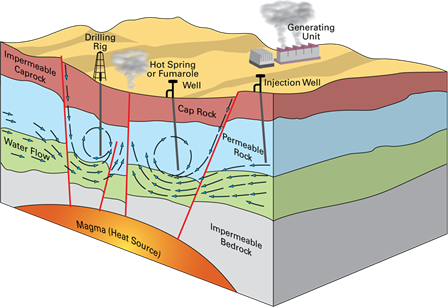
Geothermal energy is the energy stored in the form of heat beneath the earth's surface. Geothermal energy is a carbon free, renewable, sustainable form of energy that provides a continuous, uninterrupted supply of heat that can be used to heat homes and office buildings and to generate electricity.
![]()
Wind energy — What is it?

Wind power is the conversion of wind energy into a useful form of energy, such as using: wind turbines to make electricity, windmills for mechanical power, windpumps for water pumping or drainage, or sails to propel ships. A large wind farm may consist of several hundred individual wind turbines which are connected to the electric power transmission network. Wind power, as an alternative to fossil fuels, is plentiful, renewable, widely distributed, clean, produces no greenhouse gas emissions during operation and uses little land.
- Bookmark :
- Digg
- del.icio.us
- Stumbleupon
- Redit it
VilNews e-magazine is published in Vilnius, Lithuania. Editor-in-Chief: Mr. Aage Myhre. Inquires to the editors: editor@VilNews.com.
Code of Ethics: See Section 2 – about VilNews. VilNews is not responsible for content on external links/web pages.
HOW TO ADVERTISE IN VILNEWS.
All content is copyrighted © 2011. UAB ‘VilNews’.

 Click on the buttons to open and read each of VilNews' 18 sub-sections
Click on the buttons to open and read each of VilNews' 18 sub-sections 








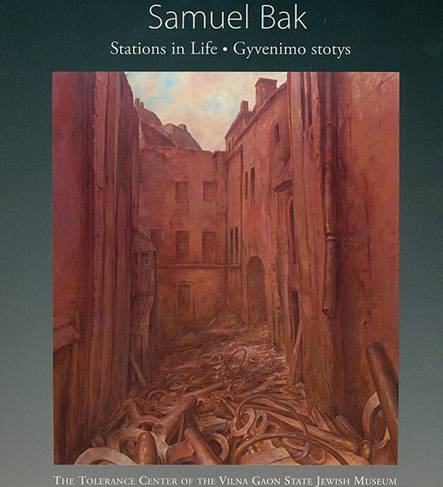
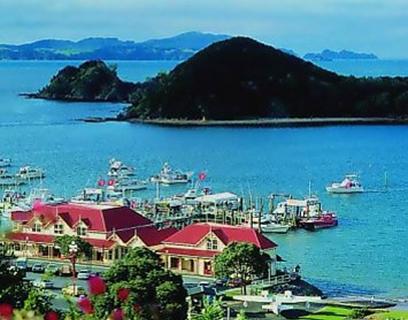
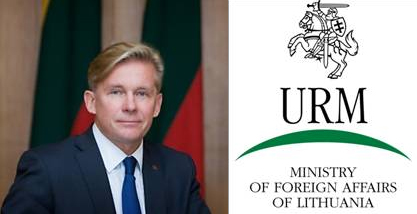
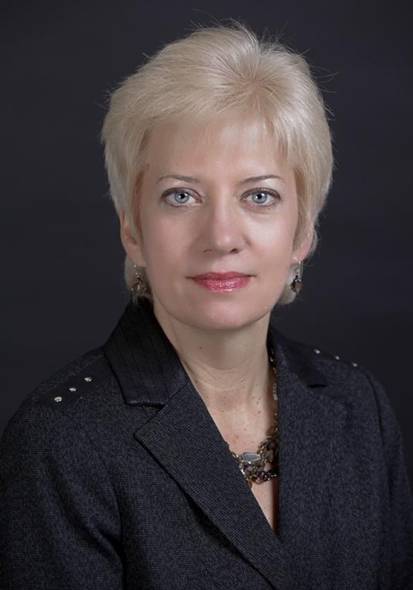
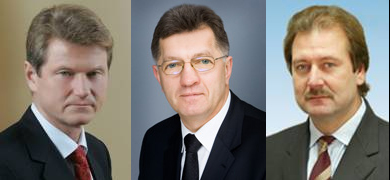
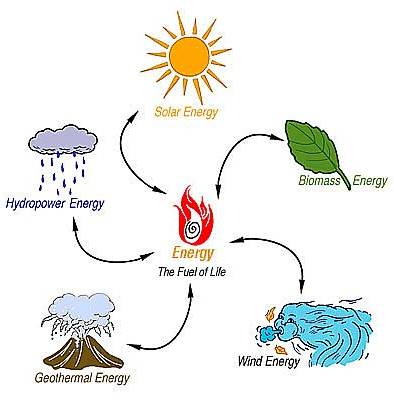









.jpg)



